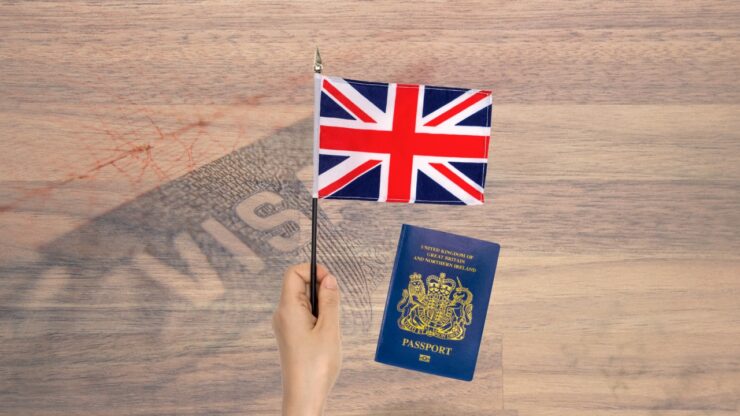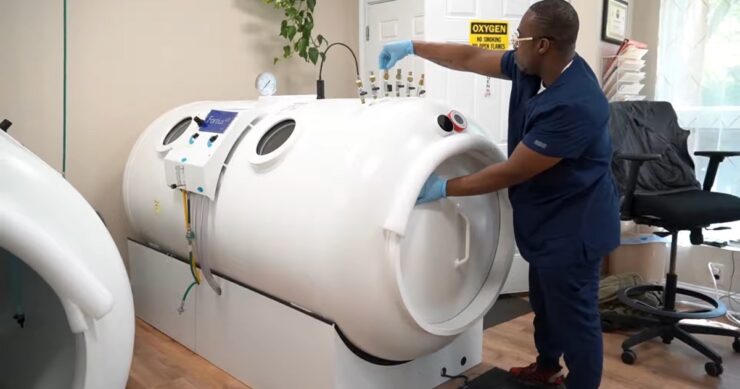
Solicitors for UK Global Business Mobility Visas

Hair Transplant Clinics in Turkey and Hair Transplant Costs – Evaluating Options in Turkey 2024

What Is the Best Printer for Label Printing? – Finding the Ideal Labeling Solution

Leveling Up Safety: The Game-Changing Potential of Driving Simulators in Education and Accident Prevention

When Should Hyperbaric Oxygen Therapy Be Avoided? Doctor-Approved Tips & Advice

Buying Bitcoin (BTC): A Comprehensive Guide to Investing in Cryptocurrency

What is the Most Played Online Casino Game in Malaysia? 2024 Trends

Impact of Restaurant Furniture on Sale – Crafting Profitable Dining Environments

How Accurate Is a Mold Inspection? Evaluating Precision – 2024 Guide

Can You Shower with Moissanite Jewelry? Tips for Caring and Cleaning
The UK government has recently launched Global Business Mobility visas to simplify the work and business visa processes by combining them into a single framework. These new visa alternatives offer employees a range of options enabling them to relocate their jobs to the UK for short or extended periods subject to meeting particular qualifications.
The landscape, for transferring workers to the UK has transformed with the introduction of five Global Business Mobility visas:
- Senior or Specialist Worker visa (Global Business Mobility)
- Service Supplier visa (Global Business Mobility)
- UK Expansion Worker visa (Global Business Mobility)
- Secondment Worker visa (Global Business Mobility)
- Graduate Trainee visa (Global Business Mobility)
Finding the visa for your employees can be quite complex. It’s important to identify the visa category that suits an employee’s requirements and meets all eligibility criteria. Moreover, it is crucial to fill out all the paperwork accurately and include all the required supporting documents.
Senior or Specialist Worker Visa

The new Global Business Mobility visa category for ‘senior or specialist workers surpasses the intra-company transfer visa offering unique benefits over its predecessor. When relocating employment to the UK through the senior or specialist worker pathway individuals gain access, to the possibility of applying for residency.
The time spent in the UK during this visa does count towards fulfilling the residence requirement for an indefinite leave to remain application.
The settlement prospects offered by the senior or specialist worker route may be more appealing to applicants seeking to avoid relocating their families and returning to their home country after a transfer of employment to the UK.
Nevertheless, the senior or specialist worker route remains subject to constraints imposed by its minimum salary threshold and skills level requirements. These criteria are notably higher than the minimum salary and skill criteria for a skilled worker visa applicant.
Service Supplier Visa
The service supplier category now takes the place of the former international agreement visa, which served as a specialized temporary work visa.
UK Expansion Worker Visa

The ‘expansion workers’ category, as defined by the Home Office, pertains to employees invited by overseas companies to come to the UK and establish a branch or subsidiary of the international company.
In the previous immigration framework, this pathway was known as the sole representative visa.
The newly introduced UK Expansion Worker visa offers enhanced flexibility compared to the former sole representative visa, allowing a business to send up to five workers to the UK to establish its presence.
Under the previous visa scheme, only one sole representative per business was permitted, and they could not transfer employees from an overseas branch until they had successfully established the UK branch or subsidiary and obtained a sponsor license for skilled worker visas.
The prior rules for the sole representative visa demanded a unique set of skills, as the sole representative had to manage the UK setup without on-site assistance from overseas colleagues who could share insights about the international company and its vision for the UK operation.
The new UK Expansion Worker visa route facilitates a team approach, allowing a group to come to the UK and collaborate in establishing a new operation, providing a more practical option for most businesses.
Secondment Worker Visa

The Global Business Mobility visa route includes provisions for seconded or secondment workers. It’s important to note that this category does not replace individuals coming to the UK for permissible activities under a business visitor visa. The Global Business Mobility visa specifically addresses seconded workers assigned to the UK branch of an international company for valuable contractual purposes.
To qualify for a Secondment Worker visa, your overseas employer must have a qualifying contract with a UK organization, amounting to a minimum of £50 million. The UK organization will then serve as the sponsor for your visa.
It’s crucial to understand that the seconded worker category does not serve as an alternative for permissible business activities covered under the business visitor visa.
Graduate Trainee Visa
The new Graduate Trainee Visa in the Global Business Mobility framework has replaced the Intra company Graduate Trainee visa. Unlike the visa, which permitted graduates to relocate their work to the UK under a structured training program the updated route still offers this option.
However, graduates now need to have at least three months of work experience, with the international company before they can transfer to the UK. Moreover, they must meet an annual salary requirement of £23,100.
Is Your Business Geared for Global Mobility?

If your company operates internationally, do you currently deploy workers from EU and non-EEA countries to the UK? If not, are you considering such transfers in the future to address the skills shortage in the UK?
If your response is affirmative or uncertain, it’s crucial to familiarize yourself with the Global Business Mobility visa.
If your answer is negative, now is the opportune moment for your business to assess how its needs can be fulfilled through domestic recruitment in the UK. If you’re encountering challenges in finding suitable candidates, exploring sponsor licenses and the Global Business Mobility visa could provide viable solutions for your company.
Who Can Benefit from The Global Business Mobility Visa?
The Global Business Mobility visa is tailored to assist UK businesses in addressing their business immigration needs and supporting overseas workers with their individual immigration requirements. It enables the time-limited transfer of staff to the UK under the points-based immigration system.
Our team of immigration lawyers foresees that this visa will be particularly appealing to businesses and organizations in the food and international trade industries.
Does a Global Business Mobility Visa Applicant Need a Sponsoring Employer?

UK business owners are worried about whether the Global Business Mobility visa program requires sponsorship meaning that the employer in the UK needs to have a sponsor license issued by the Home Office.
The Home Office has stated that hiring an employee, under any of the Global Business Mobility visa categories mandates a company to possess a sponsor license. Consequently, UK businesses must establish the necessary systems to handle a sponsor license and fulfill associated reporting and recording obligations.





